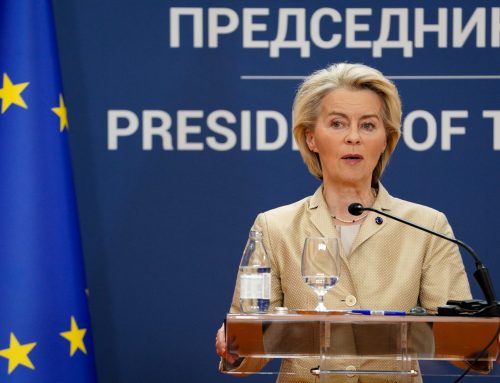The European Commission is proposing a package designed to bring overall support of at least €11 billion over the next couple of years from the EU budget and EU-based international financial institutions.
The European Commission agreed today a package of support identifying a number of concrete measures to assist economically and financially Ukraine. These measures should be seen as the Commission’s contribution to a European and international effort to support Ukraine’s economic and political reforms, and will be presented to the EU Heads of State and Government ahead of their extraordinary meeting on Thursday 5 March.
“The most immediate priority for the EU is to contribute to a peaceful solution to the current crisis, in full respect of international law”, said President Barroso. “In parallel, the international community should mobilise to help Ukraine stabilise its economic and financial situation. The European Commission is proposing today a package designed to assist a committed, inclusive and reforms oriented Government in rebuilding a stable and prosperous future for Ukraine. What we propose could bring overall support of at least €11 billion over the next couple of years from the EU budget and EU-based international financial institutions.”
The package of support to Ukraine sets out the main concrete measures that the Commission is proposing for the short and medium term to help stabilise the economic and financial situation in Ukraine, assist with the transition and encourage political and economic reform.
This engagement constitutes both a response to help stabilise the country as well as to support the reform programme and further enhance ownership of the Ukrainian authorities. While some of these measures can be carried out quickly, others will require further planning and preparation. For many of them, the urgent and active support of the Council and European Parliament are necessary.
Underpinning this approach is the ambition to help Ukraine fulfil the aspirations which have been clearly demonstrated by citizens and civil society in recent weeks in the unprecedented events in Kiev and throughout the country.
Key elements of the package agreed today:
• €3 billion from the EU budget in the coming years, €1.6 billion in macro financial assistance loans (MFA) and an assistance package of grants of €1.4 billion;
• Up to €8 billion from the European Investment Bank and the European Bank for Reconstruction and Development;
• Potential €3.5 billion leveraged through the Neighbourhood Investment Facility;
• Setting up of a donor coordination platform;
• Provisional application of the Deep and Comprehensive Free Trade Area when Association Agreement is signed and, if need be, by autonomous frontloading of trade measures;
• Organization of a High Level Investment Forum/Task Force;
• Modernization of the Ukraine Gas Transit System and work on reverse flows, notably via Slovakia;
• Acceleration of Visa Liberalization Action Plan within the established framework; Offer of a Mobility Partnership;
• Technical assistance on a number of areas from constitutional to judicial reform and preparation of elections.
Indicative amounts / ranges:
Source | Indicative amounts / ranges (in € million) |
I. EUROPEAN COMMISSION (2014-2020) | |
I.1 Overall development assistance (grants) | 1,565 |
Bilateral envelope, where: | |
– Annual Action Programme (AAP) for 2014 | 140-200 |
– AAPs (average) – for 2015-2020 | 780 |
– Umbrella programme (“more for more”) for 2015-2020 | 240-300 |
Neighbourhood Investment Facility | 200-250 |
Instrument contributing to Stability and Peace (IcSP) | 20 |
CFSP | 15 |
I.2 Macro financial assistance (loans) | 1,610 |
I.2 EUROPEAN FINANCIAL INSTITUTIONS | |
EIB | up to 3,000 |
EBRD | 5,000 |
GRAND TOTAL | 11,175 |
For more info, see:
MEMO/14/159: European Commission’s support to Ukraine



